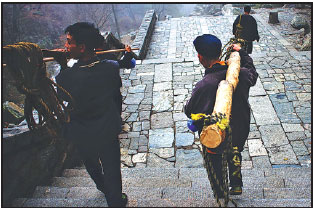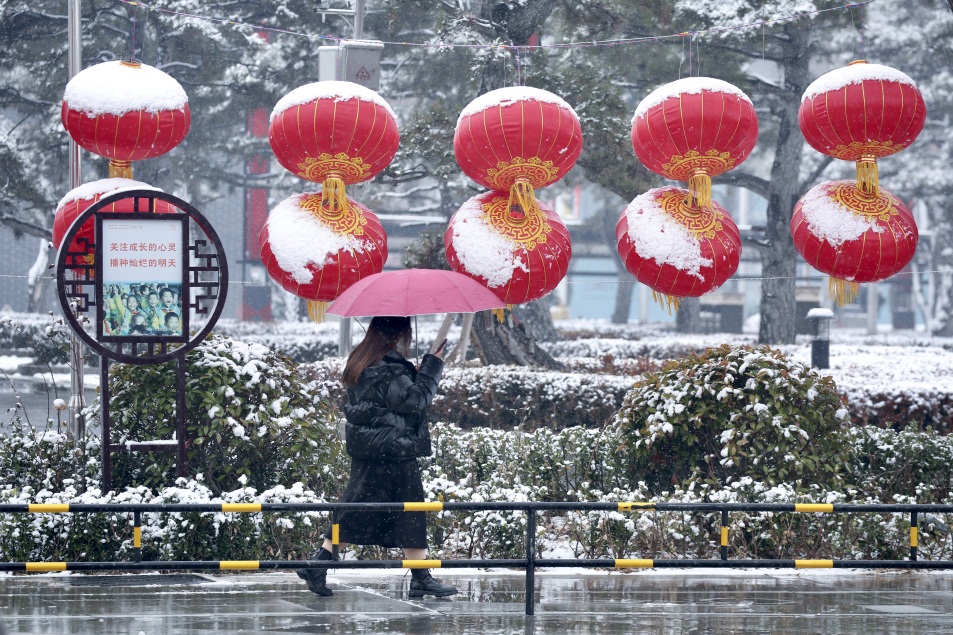Mountain porters carry on tradition
Just before Spring Festival, Lu Hong, 47, shouldering a load of over 50 kilograms on a carrying pole, finished his journey of more than 3,000 steps up Mount Tai and took a well-deserved rest. As a porter on Mount Tai in eastern China's Shandong province, Lu has to slog up the winding mountain road two or three times every day during busy seasons.
"After work, porters have a drink or a cigarette, but I don't drink or smoke. What I really like is listening to music and browsing WeChat. The most happy moment for me is counting how much I can earn each day," Lu said.
Mount Tai, one of China's Five Sacred Mountains, holds great historical and cultural significance, and its peak is referred to as the Jade Emperor Peak, approximately 1,500 meters above sea level.
The story of porters on Mount Tai was included in textbooks in China's primary schools in the 1980s. Though they may fade into history one day, they have been an indispensable part of the culture of the mountain.
In Lu's eyes, the work is fine despite the low income.
"I get a monthly payment of about 4,000 yuan ($581). Payment of our salary has never been delayed," he said.
"Porters are not only transporters of groceries but also the major construction workers on the mountain," said Zhao Pingjiang, chief of a porter group.
However, fewer people are choosing to become porters. The once attractive career is fading into history.
"Our team was established in 1983 when there were seven or eight porter groups. In 2000, my team had over 300 porters but now we have only a dozen," Zhao said.
"We used to worry about how to find enough accommodations for them," he said. "Now, we have to figure out how to improve living conditions to retain them," Zhao said.
|
Porters carry heavy poles on Mount Tai in Shandong province.Che Honggang / For China Daily |


 Shandong: Where Excellence is made
Shandong: Where Excellence is made Building a Moderately Prosperous Society: The Tai'an Way
Building a Moderately Prosperous Society: The Tai'an Way Video: Jiunvfeng Park
Video: Jiunvfeng Park

